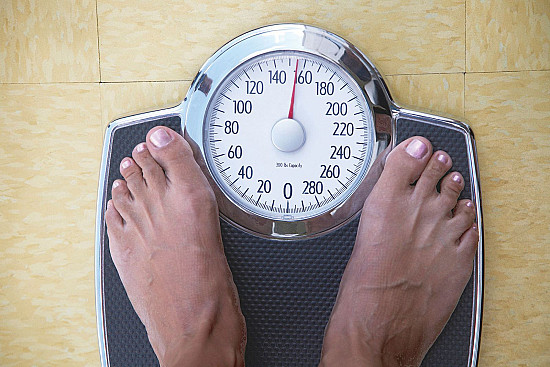Resilience: 5 ways to help children and teens learn it
Could cataract surgery protect against dementia?
Another natural remedy for constipation?
Even low-level air pollution may harm health
Boosting your child’s immune system
Does the sex of your surgeon matter? A new study says yes
Can we prevent depression in older adults by treating insomnia?
Health disparities and headache treatment
Optimism, heart health, and longevity: Unraveling the link for Black Americans
Icy fingers and toes: Poor circulation or Raynaud’s phenomenon?
Heart Health
More than a third of all adults in the United States have high blood pressure—a systolic pressure (the top number in a reading) of at least 140 millimeters of mercury (mm Hg), or a diastolic pressure (the bottom number) of at least 90 mm Hg, or both. The condition injures blood vessel walls and forces the heart to work harder, increasing the risk for heart disease and stroke.
Taking medication to treat high blood pressure is just part of the solution.
“Lifestyle modification is equally important,” says Dr. Randall Zusman, medical editor of the Harvard Special Health Report Controlling Your Blood Pressure (/ht).
Lifestyle changes, such as modifying your diet or starting an exercise program, affect your heart and blood vessels in various ways. For example, exercise helps to lower the resistance to blood flow, so your heart can pump blood with less force.
Just one change can begin to lower your blood pressure. With several, “we may be able to take you off some medications,” says Dr. Zusman.
High blood pressure risk increases approximately threefold for people who are overweight. For each pound you lose, you may be able to drop both systolic and diastolic pressure an average of one point.
Getting 30 minutes of moderate aerobic exercise (the kind that gets your heart pumping) on most days of the week has the potential to lower systolic blood pressure as much as four to nine points.
Shift to a diet with less fat and more antioxidant-rich fruits and vegetables (blueberries, strawberries, spinach, red cabbage), lean meats, legumes, chicken, fish, and whole grains. “Antioxidants have been shown to improve vascular health and reduce inflammation. Whole grains and better protein sources reduce cholesterol and triglycerides, and improve vascular health as well,” says Dr. Zusman.
In some people, too much sodium increases the amount of body fluid and blood volume, which makes the heart work harder. Limiting sodium to 2,300 milligrams per day has the potential to lower systolic blood pressure by two to eight points.
Limit daily alcohol intake to one drink (if you’re a woman) or two drinks (if you’re a man). Cutting down has the potential to reduce systolic blood pressure by two to four points. If you don’t drink, don’t start.
Foods that are high in potassium, such as sweet potatoes, white beans, and bananas, help relax blood vessels and eliminate excess sodium.
Chronic stress can lead to high blood pressure. Meditation, guided imagery, deep breathing exercises, and yoga can help you manage stress. Triggering the relaxation response—the opposite of the fight-or-flight response—goes even further. “We recently demonstrated that the relaxation response activates genes associated with dilating the blood vessels and utilizing blood sugar, and inactivates genes associated with vascular inflammation and constriction,” says Dr. Zusman.
To practice the relaxation response, sit in a quiet place with your eyes closed; relax your muscles and silently repeat a word, phrase, sound, or short prayer of your choosing over and over; when stray thoughts interfere, let them come and go, and return to your word, phrase, or sound.
Taking a daily blood pressure measurement will make you more likely to work at improving your numbers. The best times are early in the morning before you take any blood pressure medications, and again in the evening.
The nicotine in tobacco constricts blood vessels and makes the heart work harder, leading to higher blood pressure. Quit-ting can lower your systolic blood pressure by two to eight points.
Obstructive sleep apnea (frequent pauses in breathing during sleep) sometimes causes high blood pressure. Treatment—such as continuous positive airway pressure or a dental appliance—may help lower blood pressure and reduce the harm to your heart.
As a service to our readers, Harvard Health Publishing provides access to our library of archived content. Please note the date of last review or update on all articles. No content on this site, regardless of date, should ever be used as a substitute for direct medical advice from your doctor or other qualified clinician.
Heart Health
Heart Health
Heart Health
Get the latest in health news delivered to your inbox!
© 2022 by The President and Fellows of Harvard College
Do not sell my personal information | Privacy Policy
Thanks for visiting. Don’t miss your FREE gift.
The Best Diets for Cognitive Fitness, is yours absolutely FREE when you sign up to receive Health Alerts from Harvard Medical School
Sign up to get tips for living a healthy lifestyle, with ways to fight inflammation and improve cognitive health, plus the latest advances in preventative medicine, diet and exercise, pain relief, blood pressure and cholesterol management, and more.
Health Alerts from Harvard Medical School
Get helpful tips and guidance for everything from fighting inflammation to finding the best diets for weight loss…from exercises to build a stronger core to advice on treating cataracts. PLUS, the latest news on medical advances and breakthroughs from Harvard Medical School experts.
BONUS! Sign up now and
get a FREE copy of the
Best Diets for Cognitive Fitness
Stay on top of latest health news from Harvard Medical School.
Plus, get a FREE copy of the Best Diets for Cognitive Fitness.
